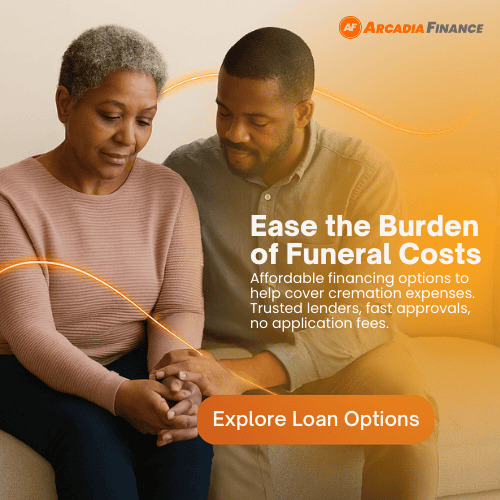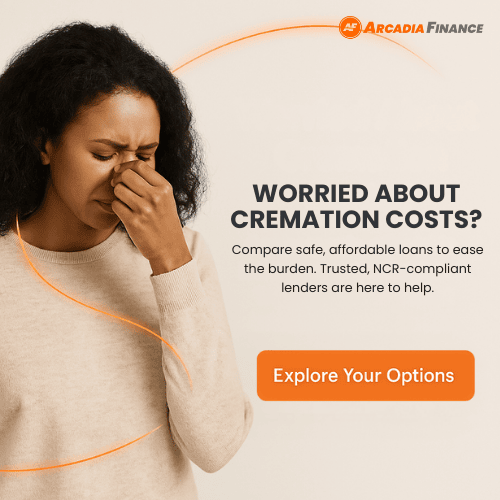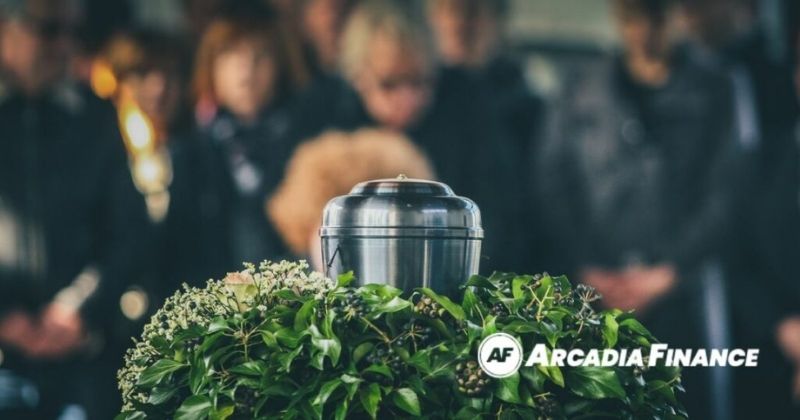
Over the past decade, South Africa has seen a notable increase in families opting for cremation over traditional burials. This shift isn’t just about changing funeral preferences; it reflects a more profound cultural and societal transformation. While it may seem like a passing trend on the surface, a closer look reveals a variety of factors, including cremation costs, influencing this choice.
Key Takeaways
- Informed Decision-Making: Making well-informed decisions regarding the cremation process and associated expenses is crucial. This ensures that choices align with both emotional needs and financial realities, minimising unexpected complications or regrets.
- Eco-Friendly Alternatives: The growing demand for sustainable practices has led to the emergence of environmentally-conscious options in cremation. Green or bio-cremation stands out as an eco-friendly choice, reducing the carbon footprint and conserving resources.
- Personalisation Without Excessive Costs: Adding personal touches to a cremation service doesn’t necessarily entail higher expenses. Integrating meaningful yet budget-friendly elements can create a memorial that is uniquely resonant without straining one’s finances.
- Advance Financial Planning: Taking proactive steps to address future cremation costs, whether through prepaid plans or dedicated savings, offers peace of mind. This forward-thinking approach locks in current rates and safeguards against unexpected financial burdens during a time of grief.
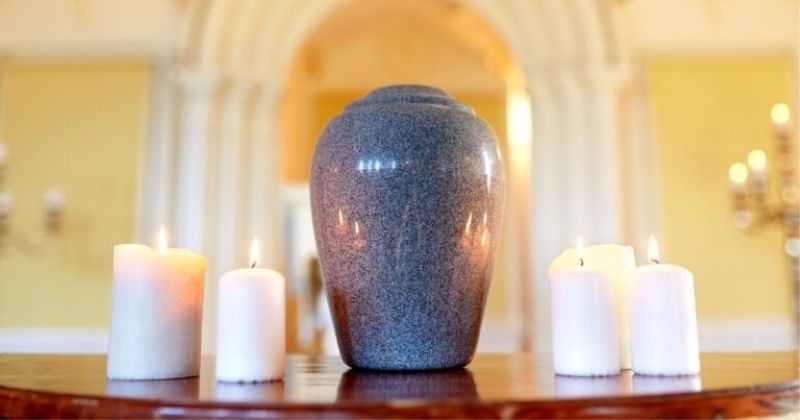
Historical Context of Cremation in South Africa
Traditional Funeral Practices vs. Modern Methods
South Africa, a nation rich in diversity and history, exhibits this diversity prominently in its funeral practices. Historically, distinct ethnic groups and cultures maintained their own unique burial customs. For example, the Zulu people engaged in a complex and ritual-intensive burial process, while Xhosa culture designated a specific family member to carry out the burial.
Cremation was a less common practice in the past but has gained acceptance over the years. This change can be attributed, in part, to urbanisation and, in part, to the influence of various religious beliefs. The contemporary method of cremation is often chosen for practical reasons, such as the limited availability of land in urban areas, and for emotional reasons, including fulfilling the wishes of the deceased.
The Influence of Culture and Religion
Culture and religion are closely intertwined in South Africa, impacting not only daily life but also end-of-life rituals. Hindu and Buddhist communities have traditionally preferred cremation because it aligns with their spiritual beliefs. However, for traditional Christian, Muslim, and indigenous African communities, cremation was typically not the primary choice. Nevertheless, as times change and land constraints increase, even these communities are gradually becoming more open to the idea of cremation.
Two Types of Cremation

Attended Cremation
During an attended cremation, the deceased is transported in a casket to a church, chapel, or venue by the funeral parlour. The casket remains present during the sermon or memorial service.
Families have the option to request the casket to be opened for a final viewing before, during, or after the service, depending on the policies of the venue.
Following the service, the casket is taken to the crematorium for cremation, either immediately or at a scheduled time. After the cremation, the remains are returned to the family in an ash box or urn.

Unattended Cremation
During an unattended cremation, the deceased is not transported to the church, chapel, or venue by the funeral parlour, and no casket is present during the sermon or memorial service.
While a sermon or memorial service can still take place at the church, chapel, or venue, the deceased will not be present at any of these events.
The deceased is then taken to the crematorium in the chosen casket for cremation. This process can occur either before or after the memorial service. Subsequently, the remains are returned to the family in an ash box or urn.
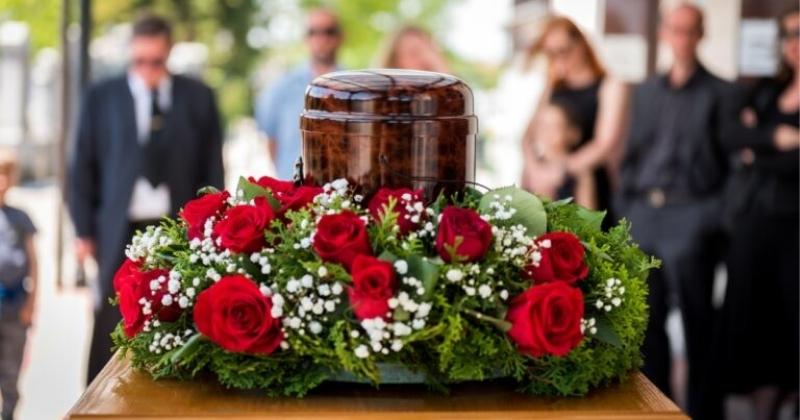
The Basic Components of Cremation Costs
Cremation Itself: The Cost Breakdown
Cremation, often perceived as a more cost-effective alternative to traditional burials, comes with its own set of expenses that are sometimes overlooked. Let’s delve into the specifics:
- Service Fee: The core of cremation costs covers the actual cremation process. The service fee can vary based on the facility and the type of cremation service chosen, such as direct cremation or cremation with a memorial service.
- Administrative Charges: Don’t underestimate the importance of legal paperwork, including death certificates and permits. These administrative tasks come with their own associated fees.
- Transport Costs: The deceased needs to be transported to the crematorium, typically in a specialised vehicle. This incurs an additional cost, which varies depending on the distance and the service provider.
- Staff Costs: Personnel responsible for handling the cremation process also need to be compensated, and this expense is typically included in the overall cost.
Coffin or Casket Selection
The choice of a coffin or casket can exert a significant influence on the overall cost of cremation. Some crematoriums provide basic containers that are both environmentally friendly and budget-friendly. However, for those seeking a more elaborate farewell, there are coffins available with intricate designs, added padding, and even customised themes.
The material of the coffin also plays a role in determining the cost. Particleboard coffins are generally more affordable, whereas hardwood or metal options can substantially increase the overall cost. It’s crucial to align your selection with both your budget and the preferences of the deceased. In some cases, crematoriums may offer the option for families to rent a more elegant casket for the memorial service and use a basic one for the actual cremation to help manage expenses.
The Various Costs of Cremation Services
The price of cremation services can differ widely depending on the choices made by the family or as specified in the last wishes of the deceased:

Direct Cremation
This is the most cost-effective and simplest form of cremation. It bypasses any formal funeral or memorial services prior to the act of cremation. Instead, the body is directly transported to the cremation facility, and the cremation occurs privately, without any attendees. This option is ideal for individuals seeking a no-frills approach or for families wishing to organise a unique memorial at a later time, which can be held in any setting, not limited to conventional funeral venues. The typical price range for direct cremation is between R10 000 and R20 000. This estimate generally covers the transport of the deceased to the cremation site and the cremation process itself.
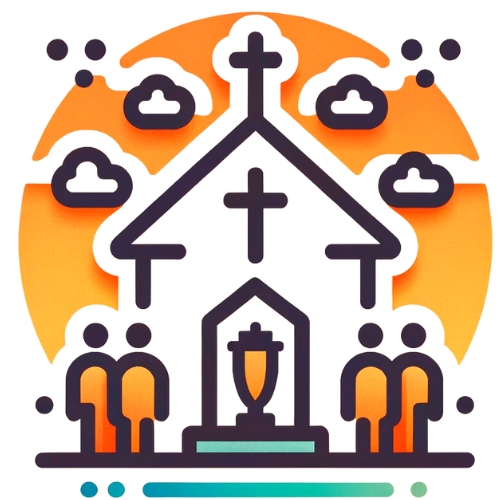
Chapel Cremation
Opting for a chapel cremation includes conducting a ceremony in a chapel or another chosen location before the cremation. This arrangement allows loved ones to come together to honor the memory of the departed with personal elements like readings, music, eulogies, and other meaningful contributions. The cost for a chapel cremation can reach up to R9 000, excluding extra services such as floral arrangements, catering, or hiring professional speakers, which can increase the total expense.

Private Cremation
Choosing a private cremation provides a more intimate and personal service. It usually involves a select group of family and friends who might engage more directly in the ceremony. People opt for this form of cremation because of the privacy and personalised touch it offers during the service. Typically, the cost for a private cremation stands at about R5 000, which reflects the private nature of the service and the utilisation of exclusive facilities.
Additional Expenses
After cremation, the ashes are typically placed in an urn. Basic urns are available from around R1 500, though more elaborate or decorative designs may cost significantly more.
Cremation fees themselves can vary depending on the municipality. For example, Johannesburg City Parks and Zoo charges R1 533 for a standard cremation, with increased fees applying for individuals over 120kg.
Transporting the deceased to the crematorium also carries a cost, which depends on the distance involved and the policies of the chosen service provider.
In addition, documentation and administrative tasks—such as securing the required permits and death certificates—can lead to further expenses that need to be accounted for during the planning process.
The Role of Funeral Homes
Funeral Services
Funeral homes have traditionally held a central role in end-of-life ceremonies, ensuring a seamless handling of every aspect of the process. Their services go beyond merely providing a place for the deceased; they offer comfort, organiation, and a sense of peace during the challenging period of loss. Most funeral homes offer package deals that encompass a range of services, including embalming, body preparation, and the coordination of memorial services. These package deals are designed to simplify the decision-making process for grieving families. Packages can vary in scope and cost, with some covering only essential services and others providing a comprehensive array of options, such as floral arrangements, catering, and even grief counseling.
Upselling and Its Significance
While funeral homes provide a valuable service, it’s important to be aware of the potential for upselling. Similar to many industries, upselling is a technique used to encourage customers to purchase more expensive items, upgrades, or additional services. This might involve suggesting a higher-priced casket, additional service offerings, or premium memorial arrangements. Being mindful of upselling tactics doesn’t necessarily mean rejecting all recommendations outright. Instead, it emphasises the need to critically evaluate each suggestion, considering its relevance and value in the context of one’s personal needs and budget.
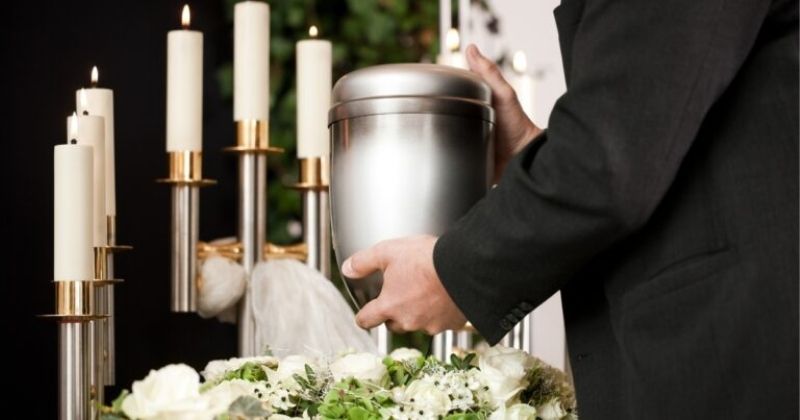
Understanding Memorial Services
Types of Services and Their Financial Considerations
Memorial services represent a final farewell, providing a space for remembrance and reflection. Depending on personal, cultural, or religious preferences, these services can vary significantly in style and cost. The most economical option is typically direct cremation, where the body is cremated shortly after death without a formal service. However, many individuals and families opt for more elaborate ceremonies, which may include wake-like viewings or full funeral services preceding the cremation. The total expenses naturally increase based on the complexity of the service, its duration, and the number of attendees. Additional elements like live music, multimedia presentations, and ornate decorations can also influence the final cost.
The Incorporation of Religious Customs and Rituals
In South Africa, with its rich tapestry of beliefs and practices, a diverse range of religious rites is often integrated into memorial services. These may encompass the Hindu practice of chanting mantras and lighting the sacred fire, Christian prayer sessions and hymns, and various other religious customs. While these ceremonies add depth and meaning to the service, they can also have cost implications. Specialised religious personnel, specific ceremonial items, or even adjustments to the venue to accommodate particular rites can all contribute to the overall expense. While personal beliefs and cultural practices often take precedence over budget considerations, it is advisable to have open discussions about any additional costs associated with incorporating specific religious rituals into the memorial service.
» Discover: The Heartfelt Way to Pen an Obituary
The Importance of Location
Urban vs. Rural Cremation Costs: A Contrast
The cost of cremation is not consistent throughout South Africa. Urban areas, with their higher operating expenses, often have more expensive cremation services compared to rural regions. City-based facilities might offer state-of-the-art amenities, which can enhance the overall experience but also contribute to higher costs. Conversely, rural crematoriums, while potentially more affordable, may not offer the same level of facilities or a wide range of services.
Transportation Factors and Their Financial Implications
Irrespective of the location of the chosen crematorium, transportation is a factor that inevitably affects the overall costs. This encompasses not only transporting the deceased to the crematorium but potentially moving them between a hospital, a funeral home, and the final cremation site. Various factors such as distance, mode of transport, and regional regulations can all play a role in determining these transportation costs.
Legal and Administrative Fees
Essential Documentation and Its Associated Costs
Death, akin to many significant life events, entails a requisite amount of paperwork. From securing death certificates to obtaining cremation permits, a series of documents must be in order before the cremation process can commence. Each piece of documentation carries its own associated cost. The need for multiple copies or expedited services can further contribute to the overall expenses. While these fees may appear relatively modest in comparison to other cremation costs, they are essential and cannot be avoided.
Addressing the Legal Aspects of Death
In addition to the paperwork directly linked to cremation, there may be other legal matters to address, such as executing wills, settling estates, or potentially conducting post-mortem examinations in cases of unexpected deaths. Seeking assistance from legal professionals during such times can be a prudent choice. However, it’s crucial to be prepared for the costs associated with legal consultations and services. Being proactive about these legal considerations ensures that individuals and families are not caught off guard during what are already challenging times.
Environmental Considerations and Their Cost Impact
Green Cremation: What Is It and What Are the Costs?
Aquamation, also known as alkaline hydrolysis or water cremation, is an environmentally friendly alternative to traditional cremation and burial methods. This process uses water, heat, and alkaline chemicals to accelerate the natural decomposition of the body, resulting in a sterile liquid and bone remains. The bone fragments are then processed into a fine powder and returned to the family, similar to traditional cremation ashes.
The environmental benefits include:
- Reduced Carbon Footprint: Aquamation has a carbon footprint that is one-tenth of traditional flame-based cremation.
- Energy Efficiency: The process uses significantly less energy compared to conventional cremation methods.
- No Harmful Emissions: Unlike flame-based cremation, aquamation does not release harmful greenhouse gases or mercury into the atmosphere.
AVBOB Funeral Service introduced aquamation in South Africa in 2019, with facilities in Cape Town and Pretoria, and plans to expand nationwide. The cost of aquamation is comparable to traditional cremation, with basic packages ranging between R18 500 and R22 000.
Prepaid Cremation Plans
The Advantages and Disadvantages of Prepaid Cremation Plans
Confronting one’s mortality and planning for it is a daunting task. However, prepaid cremation plans aim to ease some of the burden. By locking in current prices, these plans provide protection against future inflationary increases in funeral costs. They also ensure that an individual’s specific wishes are honored, thereby reducing the decision-making burden on grieving families. On the flip side, there are legitimate concerns about the financial stability of some funeral service providers. It’s essential to conduct thorough research on any company before committing to a prepaid plan, ensuring they have a reputable and stable track record.
Impact on the Overall Cost
While prepaid plans may initially appear to involve a significant upfront cost, they can often prove to be more cost-effective in the long term. By securing today’s prices, individuals can shield themselves from potential future price hikes. Many providers also offer flexible payment plans, allowing the cost to be spread out over months or even years. When considering the emotional and financial peace of mind that prepaid plans offer, they can genuinely provide excellent value for those who plan ahead.
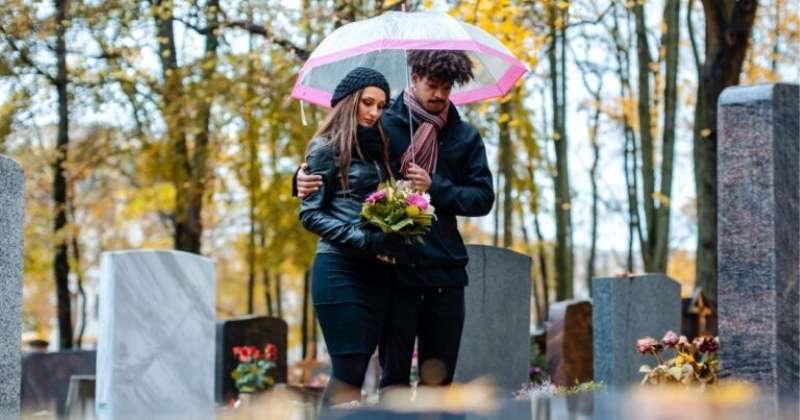
Comparing Cremation to Traditional Burials
Cost Analysis: Cremation vs. Burial
| Service/Item | Cremation | Burial |
|---|---|---|
| Basic Service Cost | R4 000 – R13 500 | R13 000 – R104 000 |
| Coffin/Casket | R700 – R50 000 | R700 – R50 000 |
| Urn | R1 500 – R5 000 | Not applicable |
| Burial Plot | Not applicable | R2 500 – R6 000 (municipal) ; R14 000 – R50 000+ (private) |
| Tombstone | Not applicable | R2 500 – R90 000 |
| Undertaker Fees | R5 000 – R10 000 | R5 000 – R10 000 |
| Venue Hire | R1 000 – R15 000 | R1 000 – R15 000 |
| Catering | R2 500 – R35 000 | R2 500 – R35 000 |
| Flowers | R500 – R5 000 | R500 – R5 000 |
| Total Estimated Range | R12 700 – R35 000+ | R21 700 – R104 000+ |
Factors That Can Impact Financial Considerations
Several factors can influence the overall costs of both cremation and burial. These factors include the choice of casket or urn, the scale of the memorial service, the location of the cemetery or crematorium, and even the specific regulations in the region. It is essential to assess each element individually and in conjunction with one another to arrive at an informed decision that aligns with both emotional preferences and financial constraints.
Financial Assistance and Support
Government Subsidies and Grants for Funeral Expenses
During times of grief, the financial burden of funeral expenses can be overwhelming. Fortunately, the South African government recognises the need to ease this burden for some of its citizens. There are specific grants and subsidies designed to assist bereaved families with funeral costs. Eligibility criteria may vary, but factors such as income level, the relationship to the deceased, and even age can influence one’s eligibility for this support.
Support from Charitable Organisations
Beyond government assistance, there are numerous charitable organisations that extend support, both emotionally and financially, to those in need. These organisations, driven by compassion and a sense of community, can help cover costs or provide services like grief counselling. Groups such as the Hospice Palliative Care Association and various church-affiliated charities often step in to lend a helping hand, showcasing the strength of community solidarity. Seeking out and connecting with these organisations can provide a valuable lifeline during emotionally challenging times.
About Arcadia Finance
Secure your loan easily with Arcadia Finance. No application charges, and select from 19 reputable lenders, all compliant with the regulations of South Africa’s National Credit Regulator.
Popular Funeral Companies and Their Basic Packages in South Africa
| Funeral Company | Service Type | Cost Range (ZAR) | Details |
|---|---|---|---|
| Avbob | Basic Grave Burial | R18 500 – R22 000 | Full funeral service including grave burial. |
| Avbob | Basic Cremation | R18 500 – R22 000 | Full funeral service including cremation. |
| Avbob | Unattended Cremation | R13 000 – R15 000 | Cremation without a funeral service. |
| Doves | Weekday Grave Burial | R3 000 | Cost for burial during weekdays. |
| Doves | Weekend Grave Burial | R3 600 | Cost for burial during weekends. |
| Doves | Basic Burial Funeral | R24 000 | Excluding grave costs. |
| Doves | Basic Cremation | R25 000 | Includes fetching the deceased, obtaining necessary doctors’ letters, transporting the body to the crematorium, and delivering the ashes to the family. |
| Fern Funerals | Grave Burial | R7 500 | Cost for a basic grave burial service. |
| Fern Funerals | Cremation | R8 500 | Cost for a basic cremation service. |
Key Considerations Before Making a Decision
Balancing Emotions and Finances in End-of-Life Decisions
Death is an intensely personal experience, and decisions surrounding it carry profound significance. Striking a balance between honouring a loved one’s memory and acknowledging financial constraints can be a delicate task. Some may feel compelled to invest more, viewing it as a reflection of their love, while others may believe the deceased would prefer a more modest, budget-conscious farewell. Navigating this emotional terrain requires self-reflection and, at times, seeking external guidance.
The Role of Planning and Consultation
The old saying “forewarned is forearmed” rings true when it comes to considering cremation and its associated costs. Engaging in pre-need consultations, exploring available options, and gaining an understanding of potential expenses can make the decision-making process more manageable when the time inevitably arrives. Professionals in the funeral industry can provide valuable clarity, ensuring that families make informed choices that align with their values and budget. This proactive approach can provide peace of mind and help ease the emotional and financial burdens associated with end-of-life decisions.

Funeral Cover to Help Pay for Funeral Expenses
Undertaker fees, which are the charges set by funeral homes or parlours, can be high, often placing families under financial pressure. To manage these costs, many South Africans choose to take out funeral cover.
This type of cover involves paying a fixed monthly premium for yourself and your family members. When a loved one covered by the policy passes away, the payout is intended to help you handle the funeral arrangements without added financial stress. The focus can then remain on grieving and holding a respectful farewell, rather than worrying about costs.
You should not be in a position where you’re scrambling to find money to pay for a funeral.
What to Consider When Choosing Funeral Cover
With so many providers offering funeral cover, it’s important to assess the details carefully before committing.
Check the value of the monthly premium against the total amount of cover offered. Some policies appear affordable but only provide limited payouts, which may not be enough to cover all funeral-related expenses.
Also, be cautious of policies with excessive conditions or delays. Some insurers advertise low premiums but make it difficult to access funds when they’re most needed. Read the terms clearly and choose a provider known for reliable and timely payouts.
How to Save Money by Arranging a Cremation
Opting for cremation can significantly reduce funeral costs, potentially saving you at least half the expense of a traditional burial funeral. Here’s how:
- No Need for a Casket: Cremation eliminates the necessity for a casket, which can be one of the largest expenses in a funeral. Basic caskets can cost thousands of rands.
- Avoid Embalming: Embalming is not required for cremation, saving additional costs associated with the embalming process.
- No Burial Vault or Cemetery Plot: Cremation doesn’t require a burial vault, cemetery plot, or full-size grave marker. These items alone can add up to several thousand rands.
- Flexible Memorial Service: Families can choose to hold a memorial service with the cremated remains present at a later date, allowing more time to plan and explore cost-saving options.
- Personalised and Cost-effective Services: Some families opt to conduct their own memorial service, which can be more personal and save on venue and staff costs.
By eliminating traditional funeral merchandise and having the flexibility to arrange a service at a convenient time, families can find more economical ways to honour their loved ones while still providing a meaningful and personalised farewell.
Conclusion
Navigating the complexities of cremation, particularly when accompanied by the burden of grief, can be akin to navigating a labyrinth. Yet, given that these decisions carry significant implications for emotional well-being and financial stability, it is crucial that they are made thoughtfully. Informed decision-making serves as a steadfast protector against unnecessary challenges and potential regrets. Whether one is guided by cultural traditions, personal convictions, or budgetary constraints, equipping oneself with comprehensive knowledge assists in crafting decisions that align with both the heart and the mind.
Frequently Asked Questions
Yes, cremation is often considered a more cost-effective option compared to traditional burials in South Africa. However, costs can vary based on specific choices, such as the selection of urns, memorial services, and other associated rituals. It’s always advisable to compare specific service offerings and costs.
Start by requesting an itemised quote detailing all services and their respective costs. Comparing prices from multiple funeral homes, reading reviews, and seeking recommendations can also offer insights into market-appropriate pricing.
Green or bio-cremation, which uses water instead of flames, is considered the most environmentally friendly option. This method reduces the carbon footprint and uses fewer resources. Selecting biodegradable urns and memorialising them without a physical marker further promotes eco-consciousness.
Absolutely. Personalisation doesn’t always equate to higher costs. Integrating personal touches, such as playing the deceased’s favorite music, encouraging attendees to share memories, or even crafting DIY memorial items, can enrich the service without significantly impacting the budget.
Prepaid cremation plans are an excellent way to financially prepare in advance. These plans lock in current prices, safeguarding against future inflation. Another approach is setting aside funds in a dedicated savings account or investing in end-of-life insurance tailored for funeral costs.
Fast, uncomplicated, and trustworthy loan comparisons
At Arcadia Finance, you can compare loan offers from multiple lenders with no obligation and free of charge. Get a clear overview of your options and choose the best deal for you.
Fill out our form today to easily compare interest rates from 19 banks and find the right loan for you.

